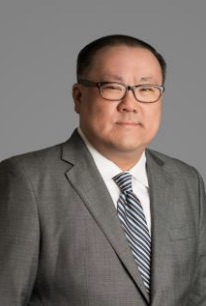WASHINGTON – The Korean American Lawyers Association of Greater New York (KALAGNY), the Asian Pacific American Lawyers Association of New Jersey (APALA-NJ), the National Asian Pacific American Bar Association (NAPABA), the Asian American Bar Association of New York (AABANY), and the Filipino American Lawyers Association of New York (FALA-NY) are anguished at the tragic death of Victoria Lee during an encounter with police officers in Fort Lee, New Jersey, on July 28, 2024. We stand in solidarity with the Korean American community in the Fort Lee area, and we extend our heartfelt condolences to Victoria Lee’s family and loved ones.
Members of the Asian American, Native Hawaiian, and Pacific Islander communities are not immune to the challenges caused by mental health crises, which may be exacerbated by cultural and language barriers. Ms. Lee’s death underscores the pressing need for greater mental health awareness and services.
We strongly encourage the Attorney General of New Jersey to provide candid and timely information, including in language for the local community, as the investigation unfolds. We further call on the Fort Lee Police Department, the Bergen County Prosecutor, and local leaders to engage in meaningful dialogue with the Korean American community in order to ensure that similar tragedies are not repeated.
뉴욕한인 변호사 협회(KALAGNY), 뉴저지 동양인 변호사 협회(APALA-NJ), 전미 동양인 변호사협회(NAPABA), 뉴욕 동양인 변호 사 협회(AABANY), 그리고 뉴욕 필리핀 변호사협회(FALA-NY)는 2024년7월28일 뉴저지 포트리에서 출동한 경찰과의 대치 끝에 비극적인 죽음에 이른 빅토리아 리(26세) 씨 사건에 대하여 비통한 마음을 금치 못하고 있습니다. 저희 협회들은(KALAGNY, APALA-NJ, NAPABA, AABANY, FALA-NY) 포트리 지역의 한인 커뮤니티와의 연대를 표명하며, 빅토리아 리씨의 가족과 친지에 게 깊은 애도를 표합니다.
모든 동양계 미국인들은 정신건강에서 초래한 문제로부터 자유롭지 않으며, 이러한 문제는 문화 및 언어 장벽에 의하여 악화될수 있습니 다. 빅토리아 리씨의 죽음은 정신건강에 대한 인식 개선과 서비스 기회가 절실히 필요하다는 것을 분명히 보여주는 사건입니다.
저희는(KALAGNY, APALA-NJ, NAPABA, AABANY, FALA-NY) 이번 사건에 대하여 뉴저지 검찰청이 수사진행 과정을 빠짐없이 신속하게 제공하도록 하며, 정보 제공 시 해당 지역사회의 언어로 번역된 정보를 포함하여 제공하도록 뉴저지 법무장관 에게 강력히 촉 구 합니다. 저희는 아울러 포트리 경찰, 버겐카운티 검찰 그리고 지역 리더들이 한인 커뮤니티와의 의미 있는 대화를 통해 이와 같은 비극 이 다시는 반복되지 않도록 보장하는 노력을 해줄 것을 요청하는 바입니다.
The National Asian Pacific American Bar Association (NAPABA) represents the interests of over 80,000 Asian Pacific American (APA) legal professionals and nearly 90 national, state, and local APA bar associations. NAPABA is a leader in addressing civil rights issues confronting Asian American, Native Hawaiian, and Pacific Islander communities. Through its national network, NAPABA provides a strong voice for increased diversity of the federal and state judiciaries, advocates for equal opportunity in the workplace, works to eliminate hate crimes and anti-immigrant sentiment, and promotes the professional development of people of all backgrounds in the legal profession.
The Korean American Lawyers Association of Greater New York (KALAGNY) is a professional membership organization of attorneys and law students engaged with the issues affecting the Korean American community in Greater New York, which include New York, New Jersey, and Connecticut. Incorporated in 1986, KALAGNY seeks to encourage the professional growth of its members as well as provide legal support for the Korean American community. To achieve these goals, KALAGNY provides its members with training and resources useful for professional advancement; expands access to legal services and education in greater New York’s Korean American communities; identifies opportunities for its members to serve the communities in which provides a forum for the expression and exchange of opinions concerning social, political, economic, legal and other issues of concern to our members. KALAGNY is an affiliate of the National Asian Pacific American Bar Association (“NAPABA”).
The Asian Pacific American Lawyers Association of New Jersey (APALA- NJ) was founded in 1985 and is the largest specialty bar association that collectively represents the interests of Asian and Pacific American lawyers in the State of New Jersey. APALA-NJ focuses on ensuring greater representation of Asian and Pacific American attorneys in various sectors of the legal profession.
The Asian American Bar Association of New York is a not-for-profit 501(c)(6) professional membership organization of attorneys concerned with issues affecting the Asian American and Pacific Islander (AAPI) community. Incorporated in 1989, AABANY seeks not only to encourage the professional growth of its members but also to advocate for the AAPI community as a whole. AABANY is a New York regional affiliate of the National Asian Pacific American Bar Association (NAPABA).
The Filipino American Lawyers Association of New York (FALA-NY) promotes the professional development, interests, and success of Filipino-American legal professionals in the Metro New York area. FALA-NY also endeavors to foster connections between Filipino-American legal professionals and the broader Filipino community. Members of FALA-NY’s Board affiliated with the state and federal court system in New York and New Jersey have abstained from FALA-NY’s endorsement of this statement.


